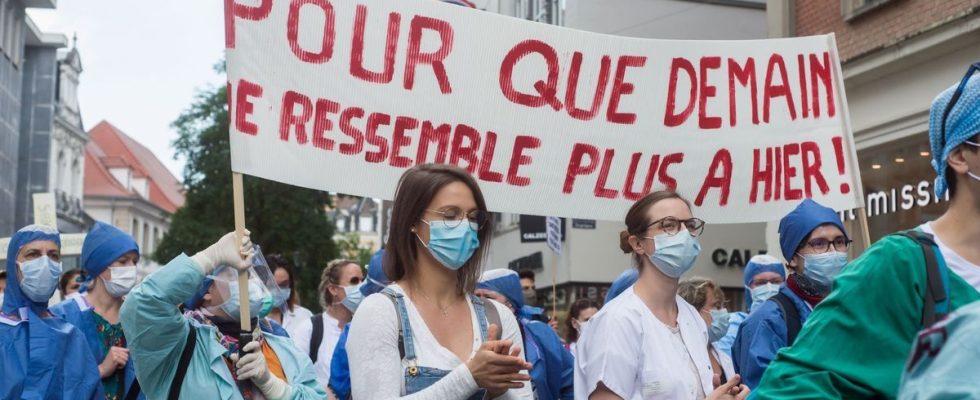Published on
Updated
Reading 3 min.
in collaboration with
Dr Gérald Kierzek (Medical Director of Doctissimo)
This year, World Health Day is dedicated to everyone’s right to health. Faced with the decline in access to care, we interviewed Dr. Gérald Kierzek, emergency physician and medical director of Doctissimo. His diagnosis is uncompromising: the health system in France is sick and here is the prescription!
Dr Gérald Kierzek : We are seeing regression in all areas and it is dramatic. The right to health is fundamental, it is a right which must allow access to care for all. However, at present, we are experiencing in France a series of profound inequalities, both economic, social and territorial. The situation is getting worse day by day and it is the consequence of the abandonment of the public hospital and health professionals, and more generally of the territories, by the public authorities.
We are experiencing a real “third world” of the French health system, with access to care still possible for those benefiting from a network and/or money but which is becoming more complicated for others. Only vital emergencies are still properly insured, here again we can note a territorial difference: the speed of care will not be the same for a person living in the heart of Paris as for someone living in Lozère, for example.
Dr Gérald Kierzek : The decisions taken by the government in matters of health always go in the same direction: that of hitting the weakest. There is no global vision of the health system, but only an economic vision. However, health is a beautiful political subject, capable of creating cohesion and generating social consent on taxes; if the service provided is of quality, the population will be ready to pay for it, I am convinced.
Unfortunately, this is not what we are currently experiencing. Today, we push the patient who takes sick leave, we hit the doctor who prescribes it, the chronically ill sees his deductible increase, he will pay it to the detriment of something else, his diet perhaps… It’s a vicious circle, which leads to tragedies. And the problem is that everyone notices it, but no one does anything about it
Is this degradation inevitable?
Dr Gérald Kierzek : Governance is going to the wall by making these kinds of decisions. But nothing is inevitable. By changing the vision taken for health in France, we can change things. On the one hand, we should already tackle the bureaucracy that has invaded the health system. On the other hand, it is necessary to establish a plural vision, both medical, but also psycho-social, because in matters of health, the three visions go together. And let’s stop constantly talking about prevention as THE solution, to hide what is happening. We must certainly do real prevention, on the other hand, we will see the effects in thirty years, on the next generation. In no case does prevention replace investment in treatment, especially in a demographic context of an aging population.
What, in your opinion, would be the urgent measures to put in place?
Dr Gérald Kierzek : We must rethink the distribution of care by redefining its territorial coverage. To do this, the organization of care must be established on three levels:
- The first concerns general and specialized primary care, private or community medicine (health centers, etc.) for daily health and regular monitoring, personalized prevention and ongoing care;
- The second level is represented by local hospitals, which must benefit from an emergency service, multi-purpose beds and why not a maternity ward, for patients who need it. These hospitals can operate with modern solutions, such as teleradiology with remote image interpretation by a radiologist. But they must include technical platforms and work in conjunction with community medicine and in particular general practitioners. This level of proximity is essential.
- And finally, the third level is provided by the university hospitals, the CHUs. These are specialized hospitals, which provide advanced care for patients who require it.
Today, this is not at all the distribution we have. Medicine is hospital-centered, with an outdated system that no longer works. And this is what has generated this two-tier medicine and the despair of caregivers and those receiving treatment.
It’s a shame, because health, like education, are two major subjects, which unite all French people and concern the entire population. This is why it is urgent to restore consideration to caregivers and grant them decision-making power.
